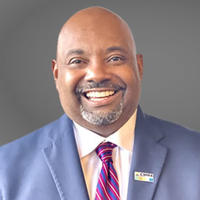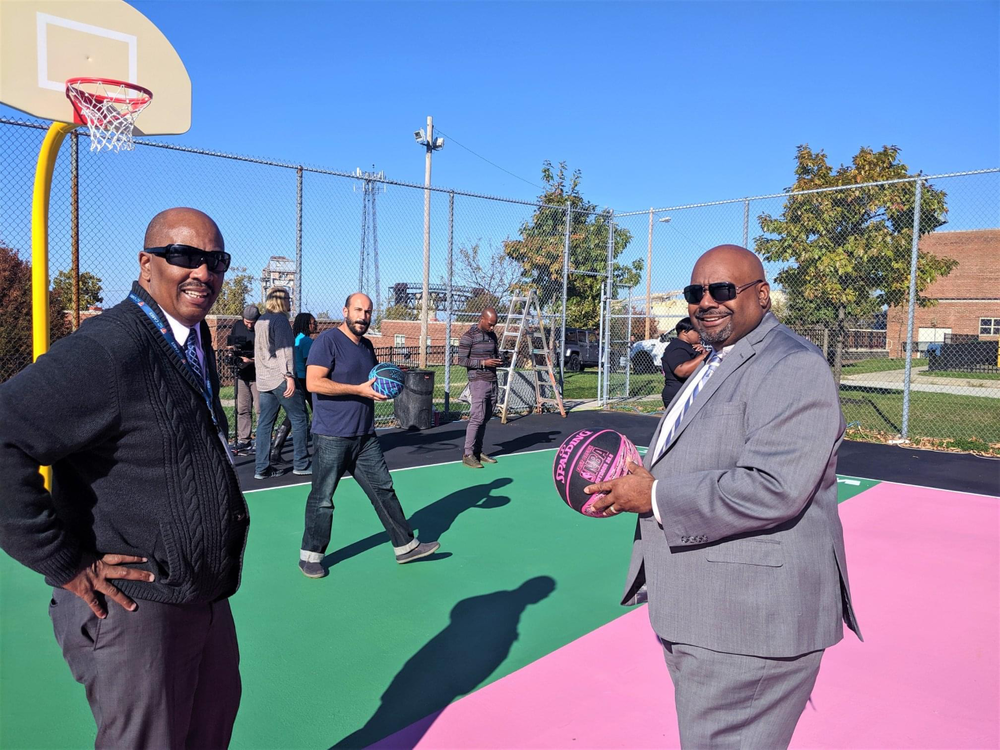
Jeffery K. Patterson (right)
My public service career began in 1989, when I started as an intern with the City of Cleveland in the labor relations department. I worked my way up through the ranks of the City of Cleveland government culminating with my appointment to the cabinet-level position of director of personnel and human resources under Mayor Michael R. White. After nearly thirteen years of service with the City of Cleveland, I joined Cuyahoga Metropolitan Housing Authority (CMHA) in January of 2002, as the director of human resources. From that position, I moved on to serve as CMHA’s deputy executive director of operations and human resource management, and later as chief of staff and operations. In April of 2012, I was asked by the CMHA Board of Commissioners to serve as chief executive officer.
During my tenue with the housing authority, CMHA has implemented an aggressive asset recapitalization and repositioning strategy that will lead to the creation and improvement of affordable housing for the residents of Cuyahoga County. In addition, CMHA is focusing on fostering neighborhood improvements, resident self-sufficiency, and housing mobility opportunities and striving to close the digital divide by creating opportunities for CMHA residents to receive high-speed internet access in their homes.
 The Cuyahoga Metropolitan Housing Authority, the nation's first such organization, was established as the Cleveland Metropolitan Housing Authority in 1933, largely through the efforts of Ernest Bohn, the Housing Authority’s director until 1968. CMHA’s portfolio consists of about 10,500 affordable housing units, manages nearly 15,500 vouchers, and serves over 55,000 people across Cuyahoga County, which includes the City of Cleveland. We provide a wide variety of programs and have a variety of community partnerships with organizations, including the various local City, County, State, and Federal entities, public library system, community development corporations, banks, and philanthropic organizations.
The Cuyahoga Metropolitan Housing Authority, the nation's first such organization, was established as the Cleveland Metropolitan Housing Authority in 1933, largely through the efforts of Ernest Bohn, the Housing Authority’s director until 1968. CMHA’s portfolio consists of about 10,500 affordable housing units, manages nearly 15,500 vouchers, and serves over 55,000 people across Cuyahoga County, which includes the City of Cleveland. We provide a wide variety of programs and have a variety of community partnerships with organizations, including the various local City, County, State, and Federal entities, public library system, community development corporations, banks, and philanthropic organizations.
Over the last 15 to 20 years, CMHA has successfully completed a $32 million Energy Performance Contract, utilized solar panels for use at both residential and administrative locations, and successful used various funding sources including 9% and 4% tax credits improve the quality of housing across our community. In doing so, CMHA’s inclusion into the overall fabric of the city has really grown. This growth is evident by the major community collaborative effort and that helped CMHA and the City of Cleveland secure a $35 million Choice Neighborhoods grant for Woodhill Homes in May 2021.
CLPHA is a very unique organization. What I like about CLPHA is how we balance advocacy and education. CLPHA does a good job of providing members with information – not just telling them what is going on, but also why it’s relevant. That’s important, and one of the things I hope to see us build on.
Also, we are housing authorities but we are bigger than just housing. The cross-sector work CLPHA does through the Housing Is Initiative, which focuses on education, health, and other areas, demonstrates that CLPHA understands that these areas are critical to the residents and clients we serve. CLPHA understands that the more tables that we are at, the more relationships and partnerships we can form - whether we are at the head of the table or not. These collaborations are very helpful as we work towards addressing the significant challenges we all face on a daily basis. So, it’s important to expand this work and include others so that others will include us in their vision as well. Supporting each other will put us all in a better place and, at the end of the day, we are serving a lot of the same people.
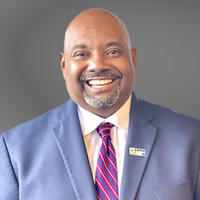
Housing authorities that have been able to earn MTW status have seen a lot of benefits from it – they have been able to find success utilizing that program to the fullest extent. Those of us who do not have those MTW benefits still face many regulatory and fiscal challenges. One of the things I would like to do in this role is emphasize that some of the flexibilities that are being utilized by MTW agencies are things that can be useful to other PHAs. The priority is for as many PHAs as possible to gain MTW status but barring that, to make some of those MTW tools and flexibilities available to non-MTW agencies with the possibility that they may replicate the successes of MTWs.
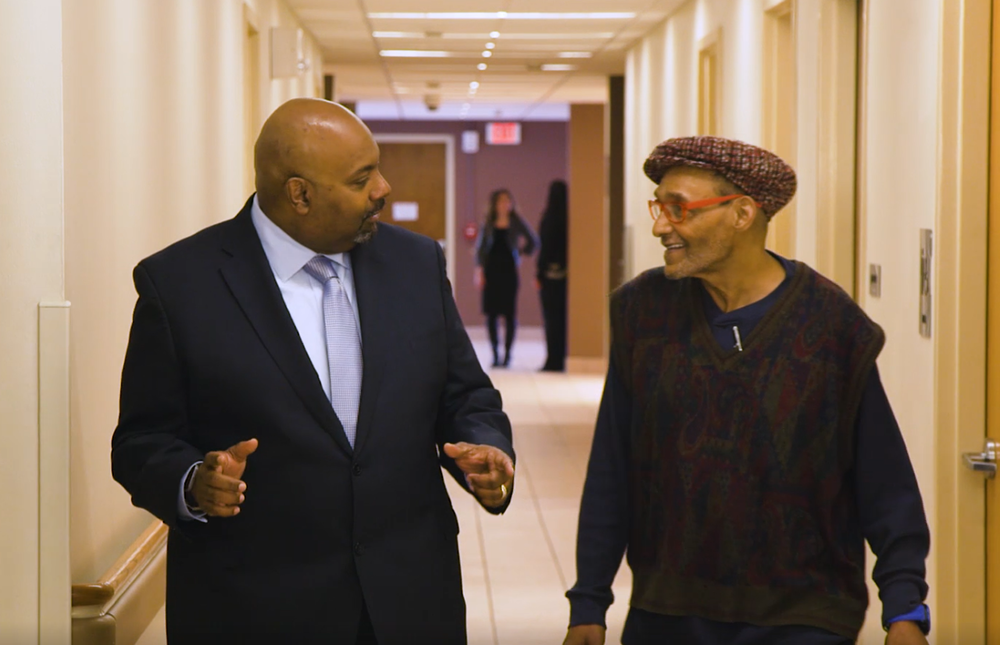
Our work in Cleveland shows us how important the Housing Choice Voucher Program is for providing affordable housing options, so one goal is to continue to see the continued development and expansion of that program. Yet, while we are working to see the HCV program expand, it is important to make sure there are more affordable units for voucher holders – it does not do any good to have a million vouchers and only 200,000 units where landlords are willing to accept them, for example. There is a huge desire to work with landlords and making the HCV program appealing to them is crucial.
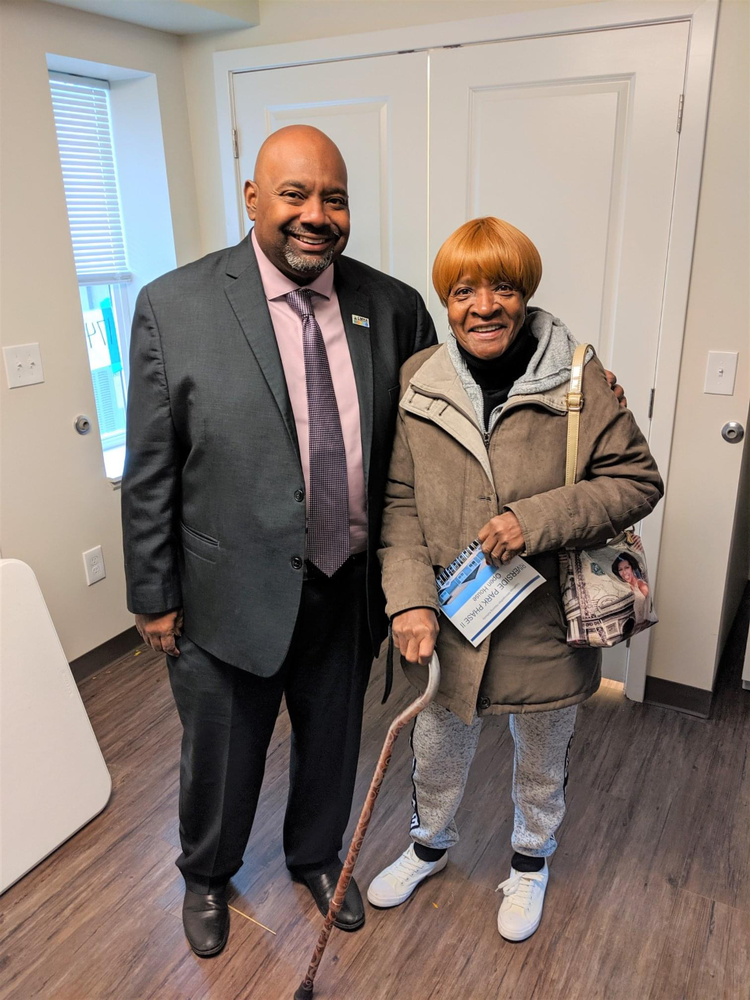 Our goal needs to keep housing investments front and center in any legislative vehicle, whether it is a budget reconciliation bill (like Build Back Better) or through the appropriations process. There is a strong need for capital improvements within our sites. If we are going to continue to provide affordable housing, we need more resources to do that and those resources have to be significant. We cannot continue to do everything piecemeal – we need to launch major initiatives, especially at the largest housing authorities, so at a minimum, we need increased housing investments so that we can start getting some of these funds directly into communities.
Our goal needs to keep housing investments front and center in any legislative vehicle, whether it is a budget reconciliation bill (like Build Back Better) or through the appropriations process. There is a strong need for capital improvements within our sites. If we are going to continue to provide affordable housing, we need more resources to do that and those resources have to be significant. We cannot continue to do everything piecemeal – we need to launch major initiatives, especially at the largest housing authorities, so at a minimum, we need increased housing investments so that we can start getting some of these funds directly into communities.
Thirdly, the public and affordable housing industry is changing. There are many people coming into the industry and many people leaving. I think one of CLPHA’s roles is to work to maintain that level of connectivity, information sharing, and advocacy that brings members in and unites us to voice what our residents need and how we can improve their homes and their lives.
Finally, one thing we have worked on a lot at CMHA is digital inclusion. You need to be able to have low- or no-cost internet service in your home. Our residents need it in their homes if they want to participate in today’s society. It is a utility service, and it should be treated as such. The internet is an important tool for us at the housing authority to be able to communicate with our residents, so it is important they have access to it. COVID has shown us how crucial this connectivity option can be and how quickly we may need to rely on it.
To add to that, another goal of mine is for us to take the conversations that CLPHA has led the last two years and put together a platform of reengagement with our residents and each other. We have been away from each other for two years, and in that time, many of our residents have had numerous challenges. We need to get out, to find out how they are and what they need. Residents, especially seniors, have been isolated since March 2020, and there is a huge need for mental health and other social services for them.
Housing is essential. If you do not have housing, you do not have a foundation. If that foundation is not safe, comfortable, or stable, it affects every aspect of your life – school, work, health, family life, everything. If there is an investment in housing, there is an investment in those other areas as well. In addition, if there is no investment in housing, it makes matters in these other related areas less impactful.
For so many years, housing authorities have been getting the short end of the stick. It is getting to the point now where we are at the very end of the stick. One of the reasons why there was such a large investment proposed in BBB and the funding levels were at those proposed levels is the recognition that housing authorities need to do this. It means a lot for community residents to drive through their cities or more rural neighborhoods and see the lower-income areas having investment and redevelopment. It brings a sense of pride. It is a win-win for everyone.
